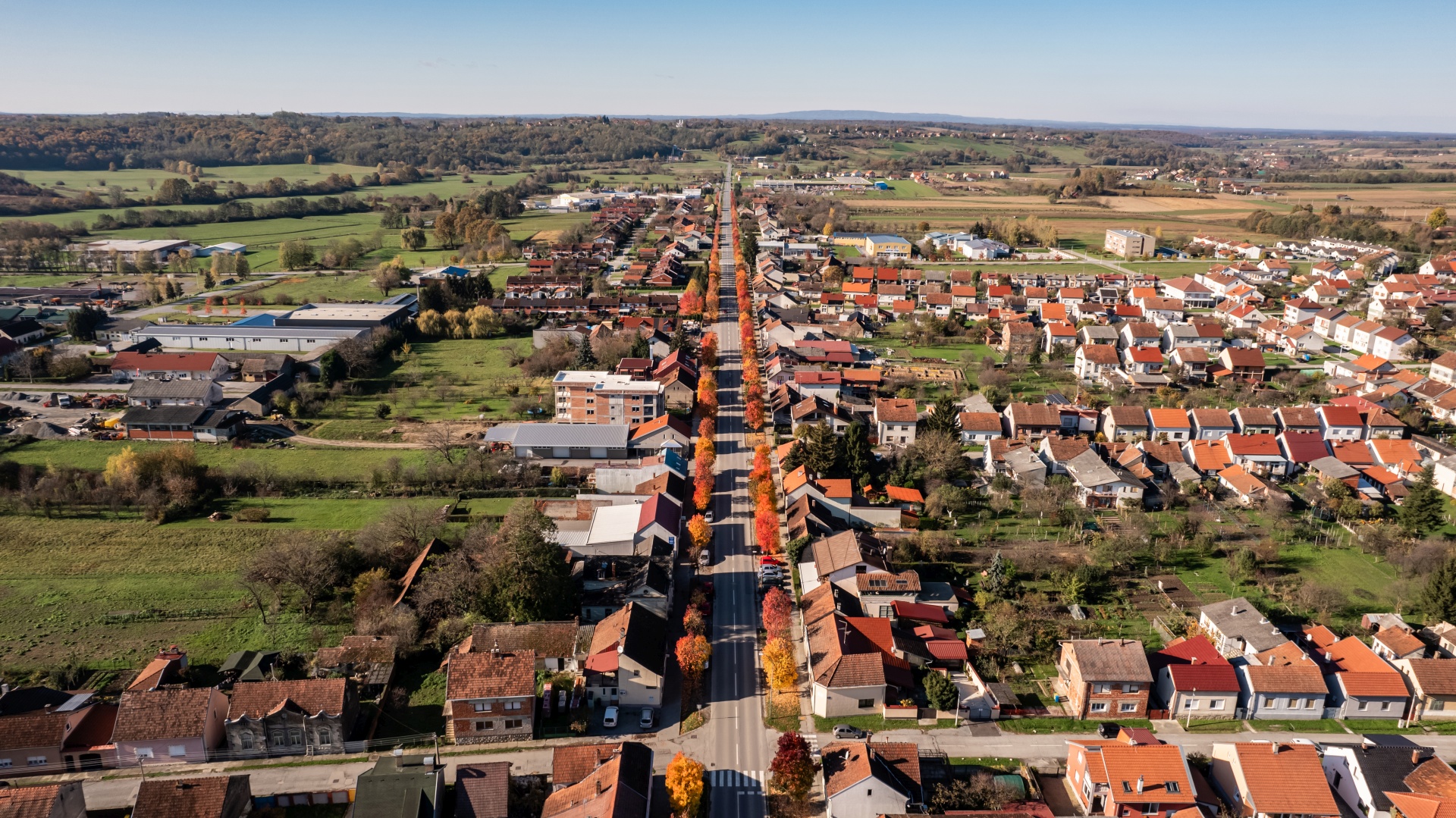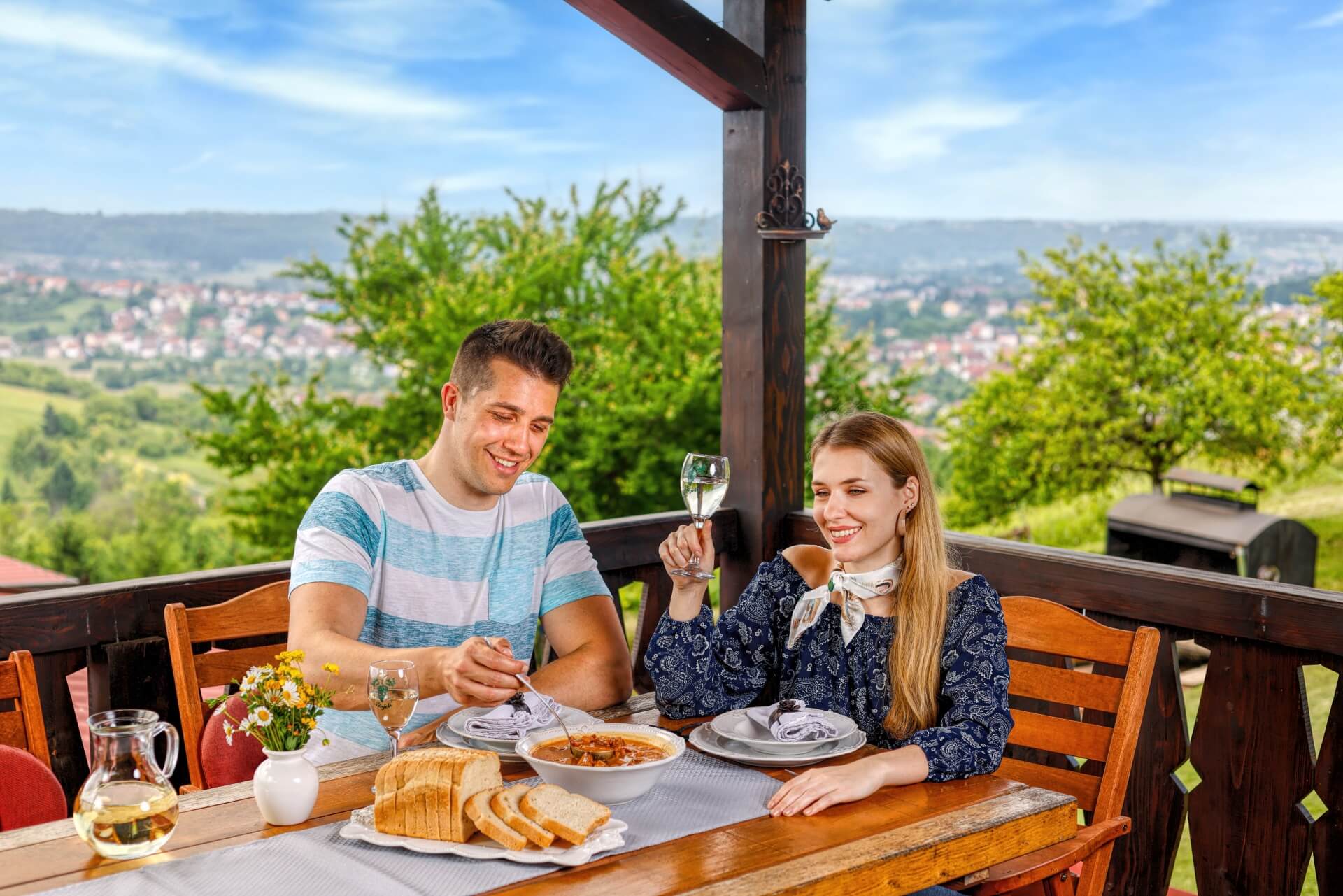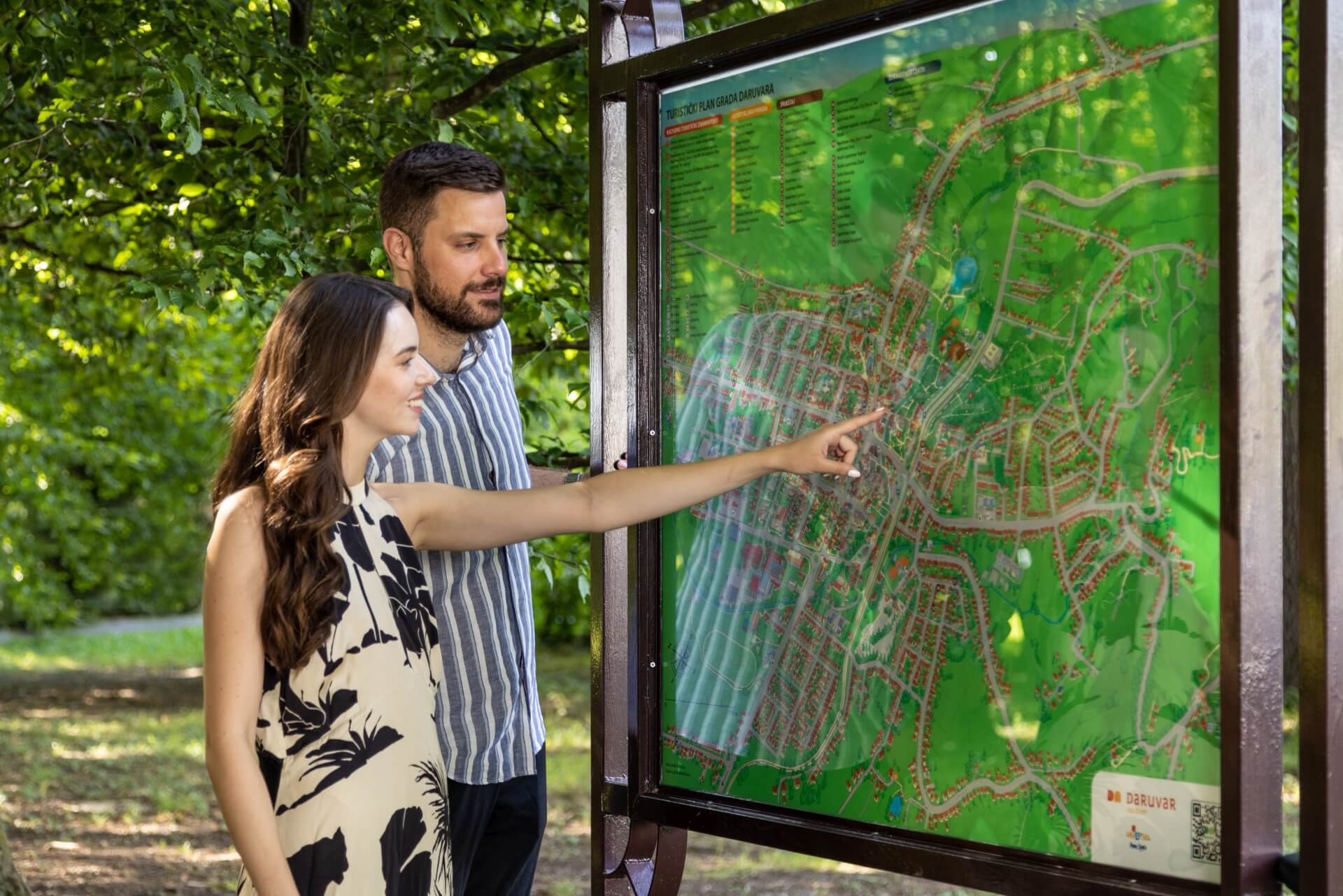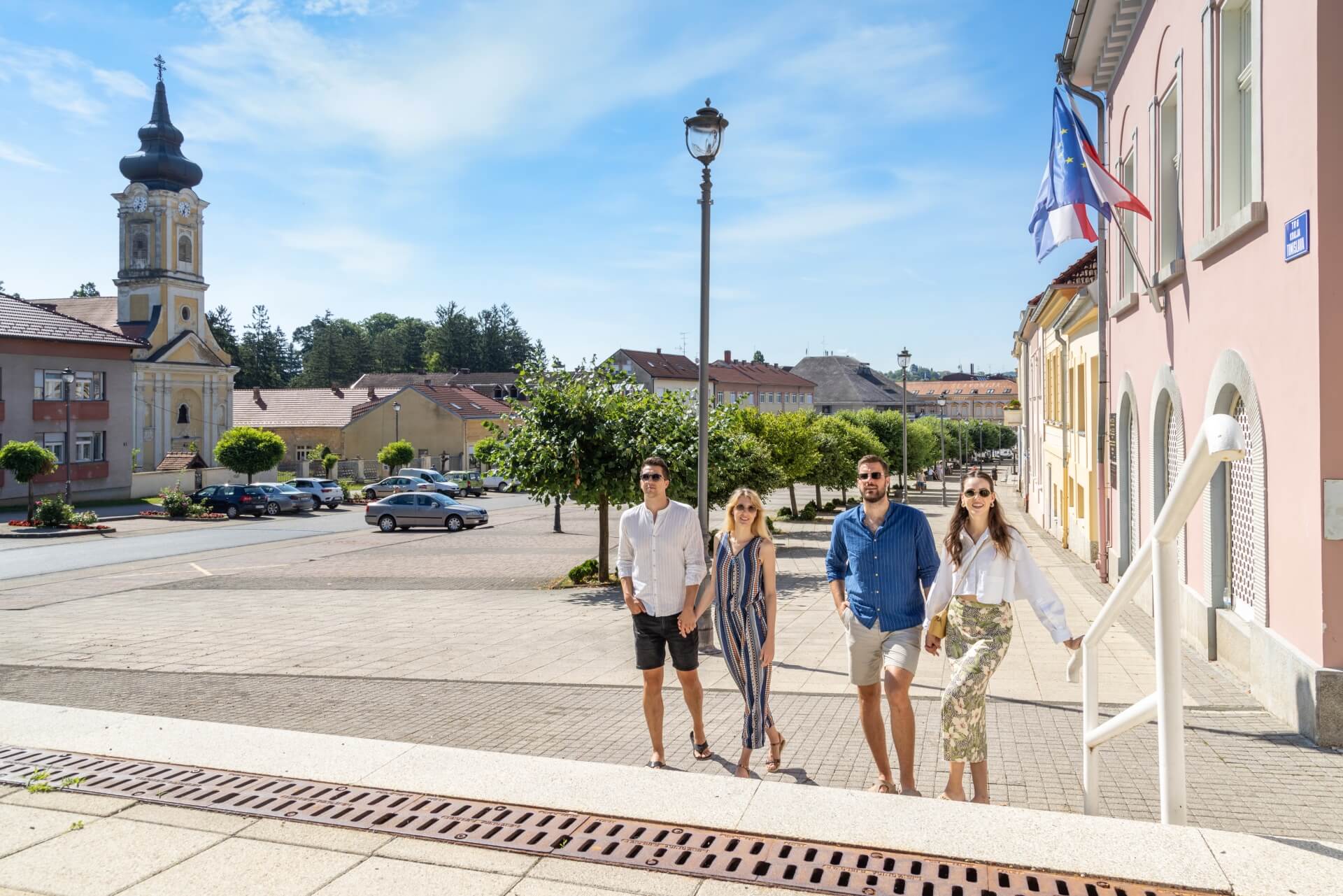Daruvar position

DARUVAR – CRANE'S TOWN
Four gold, two silver and one bronze recognition from the Croatian national tourist board confirm that the town Daruvar is the most decorated small town of continental Croatia. The combination of greenery and urban architecture, cultural diversity and fertile vineyards are one of the reasons that contributed to the flattering title.
Daruvar, famous spa town with the tradition of health tourism for over two thousand years, the town boasts with an enriched combination of greenery, new and historic buildings and a rich selection of touristic and recreational facilities. Certainly You can complete Your experience with the traditional gastro offer and with the wine tasting.
In ancient times, it was the capital of the Iassan Republic, during the Romans a widely-known patrician thermal health resort – Aquae Balissae which means „very hot springs“.

In Turkish times it was an important strategic point, later a market town and in the time of the counts Jankovich, who are considered the founders of Daruvar as it is today, the town was transformed into a centre for crafts and trade.
Daruvar in Hungarian means Crane's town and was named after Antun Janković built a baroque castle and called it Daruvar, and since then the name Podborje disappeared.

Daruvar spa with its long tradition, rich tourist offer, the Daruvar wine road and recreational areas which are located within the newly opened Thermal water park Aquae Balissae make the town an interesting place to visit for many local and foreign visitors. Two large decorated parks and the Roman forest in the town center which discreetly blend with the town architecture make the town one of the greenest urban areas in Croatia.

As a manufacturing and trading center, the town Daruvar also developed into a prominent cultural center that hosts many cultural and entertainment events. Traditional annual festivals which are held in Daruvar are: Vincekovo (opening the season of vineyard works), Vinodar (the most significant festival of wine of town Daruvar and its vintners), Darfest (festival of entertaining music), FLIG (international festival of brass music), Dožinky – harvest ceremony (the most important festival of Czech minority), MASKA (theater festival for kids) and Martinje (Ceremony of wine baptism).
Autor fotografija: Miljenko Hegedić, Stipe Boščić
Municipalities
Turistička zajednica područja Daruvar-Papuk od 2011. godine, uz grad Daruvar, zastupa i općine u okruženju: Dežanovac, Đulovac, Končanica i Sirač.
Since 2011, the Tourist board of the area Daruvar-Papuk has, besides Daruvar, also been representing the surrounding municipalities: Dežanovac, Đulovac, Končanica and Sirač.
Municipality Dežanovac
Dežanovac is the homonymous municipality in Bjelovar-bilogora County, formed in the western areas of Papuk hills. The municipality covers an area of 99,85 km2, and, apart from the municipal center, another eleven villages belong to this municipality.
In the medieval time, at the location of this settlement a fortress Holly Ghost (hung. Szentlelk) was located with the manor property of the aristocratic family Kaštelanović that had in their possession fortresses Sirač and Željnjak, partly Dimičkovina next to nowadays-called Upper Daruvar, and other assets. At the start of Turkish conquests they escaped to Bisag, Croatian Zagorje, where this baron line died out. Croatian families from Gorski kotar and Lika established the new settlement around 1746 and it is mentioned for the first time in a document of Požega county from 1781 called “Desanovo selo”. German, Hungarian and mostly Czech population from the northern countries of the Habsburg monarchy have inhabited Dežanovac and nearby places, especially at the second half of the 19th century.
Municipality Đulovac
Municipality Đulovac is located in the east part of Bjelovar-bilogora County, on the hilly area, at the turn of the mountainous areas of Papuk in the undulating Poilovlje. According to the last Census of population (2001) 3 640 people live in 1 072 household in Đulovac.
In the saddle between the steep slopes of Papuk, Psunj and Bilogora, in the vicinity of the spring of the Ilova River to the north, and the fortress of the Croatian nobility of Stupèanica to the south, in 1852 a new settlement of forest workers and craftsmen began to grow. According to the legend the village got its name Julovac or in Hungarian Gjulaves, after Julius, the son of Count Izidor Jankovic of Hungary.
Contact:
Address: Đurina ulica 132, 43 532 Đulovac
Tel: 0038543/ 382-044; 382-028
Fax: 003543/382-027
Web: www.djulovac.hr
E-mail: opcina@djulovac.hr
Municipality Končanica
Končanica has settled half way between Veliki Zdenci and Daruvar, it is a place where the majority is the national minority. To be exact, from the total number of residents 52,52% are Czechs, which, besides Končanica, also inhabit Daruvarski Brestovac. Naturally, Daruvar with its region is the most populated area with Czechs and Hungarian people, mostly migrated from Czech and Moravia.
After the defeat at Vienna in 1683, Turkish power was weakening. Austrian authorities have resolved the very mild inhabitancy of Vojna krajnina by encouraging the migration process and for that purpose a so-called “Einwende-rungspatent” was established, a document about emigration and immigration. It was the right time for the numerous Czech families to set out for more mild inhabited parts of the Empire and in favour for it was also a, of that time, valid law in Czech by which only the eldest son could inherit the family estate. Therefore, many young people left their homes in search for a better life. Many found a better life in the region of Daruvar and some smaller places in that area and one of such places is Končanica.
The area is acutely agricultural and the nearness of the river Ilova was in favor of fish breeding in ponds over a hundred years old. The place is dominated by the parish church of Holly Virgin Mary, the rich rivers and forests give great possibilities for the development of country, hunting and fishing tourism.
Contact:
Address: Končanica 260, 43 505 Končanica
Tel: 0038543/325-021
Fax: 0038543/325-012
E-mail: opcina.koncanica@bj.t-com.hr
Web: www.koncanica.hr
Municipality Sirač
The medieval manor with a fortress named Zyrch, Szirach has changed many owners. A family Kaštelanović with its centre in Sv Duh - Holly Ghost (Dežanovac), built new fortresses in Sirač and Zelnjak (Selnyak). After almost 150 years reign of Turkish conquerors, since 1776 the settlement has started to be inhabited by Croatian families from Lika and Gorski kotar. On many occasions, inhabitants from Bosnia settled in Sirač and since the middle of the 19 century, German and Czech families from northern parts of the Habsburg Monarchy have been occupying this area.
The centre of the Municipality Sirač is located at the area where the river Bijela and Pakra come out from the mountain massive Papuk and Ravna Gora and where the stream Željnjak flows in the river Bijela. This area is know from long ago as prosperous for creation, development and life of a settlement because the valley of river Bijela is favourable for the building of roads that go deep in the mountain interior, rich with water, forests and rocks.
Contact:
Address: Ul. Stjepana Radića 120/1, 43 541 Sirač
Tel: 0038543/675-250
Fax: 0038543/675-259
E-mail: opcina@sirac.hr
Web: www.sirac.hr





